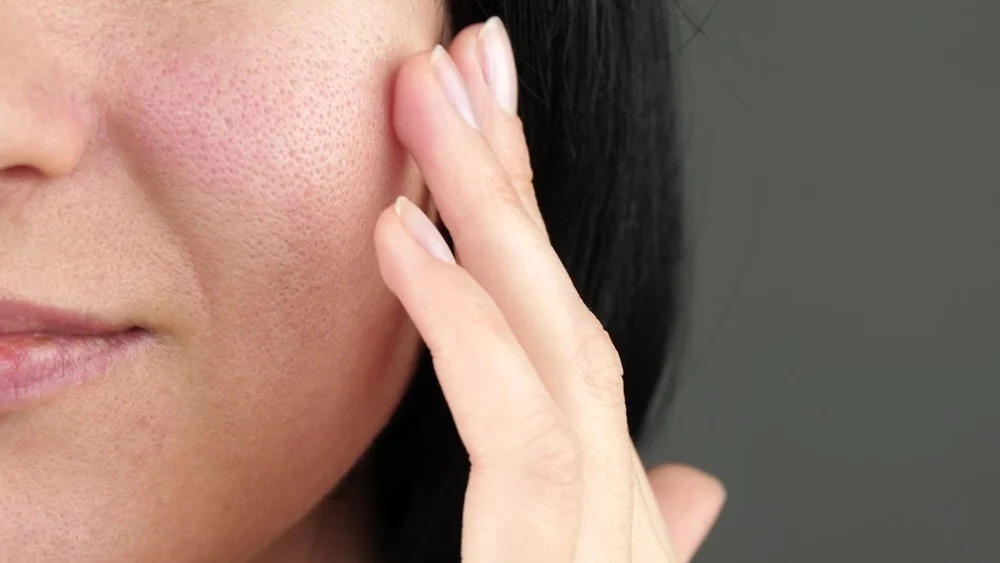Pollution and Skin Sensitivity
In our increasingly urbanized world, pollution has become a pervasive environmental concern that affects not only the air we breathe but also our skin health. Beyond its visible effects on the environment, pollution can significantly impact the skin, leading to increased sensitivity and various dermatological conditions. This article delves into the connection between pollution and skin sensitivity, exploring how environmental pollutants contribute to skin issues and offering insights into managing and protecting sensitive skin in polluted environments.

Understanding Pollution and Its Effects on the Skin
Pollution encompasses a range of harmful substances, including particulate matter (PM), ozone (O3), volatile organic compounds (VOCs), and heavy metals. These pollutants originate from sources such as vehicle emissions, industrial activities, and household products. When exposed to the skin, pollutants can penetrate its surface and disrupt its natural barrier function. This disruption can lead to a cascade of adverse effects, including inflammation, oxidative stress, and impaired skin defense mechanisms.
Impact of Pollution on Skin Sensitivity
1. Increased Inflammation
Pollutants like PM and ozone can trigger inflammatory responses in the skin. This inflammation manifests as redness, itching, and irritation, particularly in individuals with sensitive skin. Prolonged exposure to pollutants can exacerbate existing skin conditions such as eczema, rosacea, and psoriasis, making the skin more prone to flare-ups and discomfort.
2. Oxidative Stress
Pollution-induced oxidative stress occurs when pollutants generate free radicals in the skin. Free radicals are unstable molecules that can damage cellular structures, including lipids, proteins, and DNA. This damage not only accelerates the aging process but also weakens the skin’s barrier function, making it more susceptible to environmental aggressors and allergens.
3. Impaired Skin Barrier Function
The skin’s barrier function plays a crucial role in protecting against external threats and maintaining moisture balance. Pollution can compromise this barrier by disrupting lipid layers and altering pH levels, leading to increased permeability and moisture loss. A weakened skin barrier can result in heightened sensitivity, dryness, and susceptibility to irritants.
Managing and Protecting Sensitive Skin in Polluted Environments
1. Gentle Cleansing
Effective skincare begins with gentle cleansing to remove pollutants, excess oil, and impurities without stripping the skin of its natural oils. Opt for sulfate-free cleansers that are gentle yet effective in maintaining the skin’s pH balance.
2. Antioxidant Protection
Antioxidants play a crucial role in neutralizing free radicals generated by pollution. Incorporate skincare products enriched with antioxidants such as vitamin C, vitamin E, and green tea extract to protect the skin from oxidative stress and inflammation.
3. Barrier Repair
Repairing and strengthening the skin’s natural barrier is essential for reducing sensitivity. Look for moisturizers and serums containing ceramides, fatty acids, and niacinamide to replenish lipids, restore hydration, and enhance barrier function.
4. Anti-Inflammatory Ingredients
Calming ingredients like chamomile, aloe vera, and licorice root extract can help soothe irritated skin and reduce redness caused by pollution-induced inflammation. These ingredients have anti-inflammatory properties that promote skin comfort and resilience.
5. Sun Protection
UV radiation can exacerbate the effects of pollution on the skin. Apply a broad-spectrum sunscreen with SPF 30 or higher daily to shield the skin from UV rays and minimize damage caused by environmental stressors.
6. Avoidance of Polluted Areas
Limiting exposure to highly polluted areas or wearing protective clothing, such as hats and scarves, can reduce direct contact with pollutants and minimize their impact on sensitive skin.
Natural Ingredients to Combat Pollution Damage to Your Skin
Conclusion
The link between pollution and skin sensitivity underscores the importance of proactive skincare strategies in today’s urban environments. By understanding how pollutants affect the skin and adopting targeted skincare practices, individuals can mitigate the effects of pollution-induced sensitivity and maintain skin health. From gentle cleansing and antioxidant protection to barrier repair and sun protection, incorporating these practices into your daily skincare routine can help safeguard sensitive skin against the detrimental effects of environmental pollutants.







Leave a reply